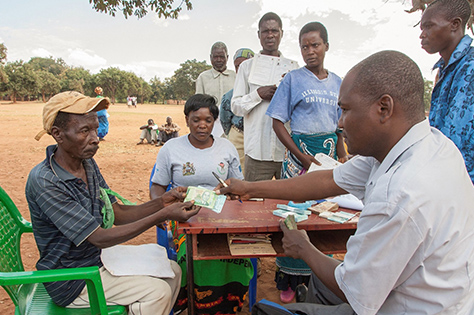
| HARMONIZED SOCIAL CASH TRANSFER PROGRAMME IN ZIMBABWE | |
| Name: | Harmonized Social Cash Transfer Programme in Zimbabwe |
| Year: | 2011-2012 |
| Client: | Ministry of Labour and Social Services, Department of Social Services (DSS) |
| Country: | Zimbabwe |
| Background: | Harmonised Cash Transfer Programme (HSCT) is a key programme pillar of the revised National Action Plan for Orphans and Vulnerable Children (NAP OVC) 2011-2015 and its accompanying Child Protection Fund (CPF). The Programme of Support is a pooled funding mechanism managed by UNICEF in partnership with the Ministry of Labour and Social Services (MOLSS) which seeks to address inequities through a comprehensive child protection and social protection approach to the vulnerable children and families. It was designed, as one of its main pillars, to support the DSS to design a national government owned and coordinated cash transfer programme which targets labour constrained food poor households with clear targeting, monitoring and evaluation and implementation strategy. By implementing a cash transfer programme the CPF aims to reduce household poverty of approximately 55,000 extremely poor households including those with orphans and other vulnerable children. The cash transfer programme will be implemented in all ten provinces of Zimbabwe covering one district per province with a total population of approximately 231,657 households (according to the 2002 census). The overall objective of CF is to contribute to a national child and social protection framework and to revitalise existing Government programmes to assist the poorest and most vulnerable families. The government’ current social cash transfer scheme supports the elderly, the disabled, child headed and the orphans. To complement the already existing scheme, the HSCT will focus on the labour-constrained households that are extremely poor or food poor.JIMAT was hired to implement targeting of labour constrained and ultra-poor households in ten districts spanning all 10 provinces in Zimbabwe. The survey included a census survey of 244,162 households and second round interviews of 34,276 households over a period of 4 months. A total of 506 enumerators were contracted to complete the data collection. Responsibilities for JIMAT included design and management of the entire survey, sub-contracting ZIMSTAT and fund management. |
| Objectives: | The overall goal of the assignment was to implement targeting of labour constrained and ultra-poor households in ten districts spanning all 10 provinces in Zimbabwe |
| Activities: | Recruiting and training of 506 enumerators, Conducting and managing household survey, Data entry management, Sub-contracting ZIMSTAT and fund management, Management of the entire survey |
| Special Recognition: | |
| Publications: |


